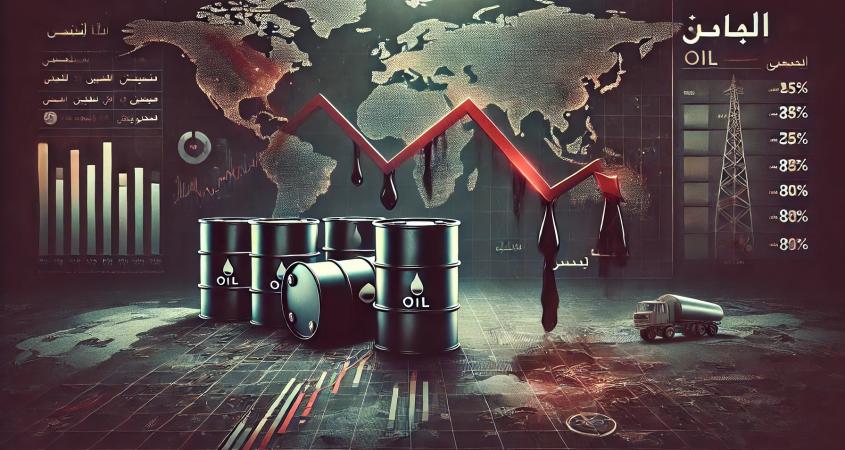Oil Prices Decline Despite Escalating Geopolitical Tensions

Oil prices continue to decline for the second consecutive session, with Brent crude dropping to around $85 per barrel and West Texas Intermediate (WTI) falling to about $80 per barrel. This decline is occurring despite escalating attacks on ships off the coast of Yemen, where two ships were attacked in the Red Sea following the sinking of a coal tanker due to increased hostilities by Houthi militants in the region.
In broader financial markets, Asian stocks fell ahead of the release of inflation measures that will guide expectations regarding interest rates. Meanwhile, the dollar stabilized near its highest levels since November, increasing the cost of commodities.
Despite the current decline, crude oil is still on track for monthly gains, with signs of rising gasoline demand in the United States and increased demand for air travel. Additionally, the price spread between the nearest two Brent contracts widened this month, indicating a tightening supply.
Warren Patterson, Head of Commodities Strategy at ING Groep in Singapore, stated, "We still expect a deficit in the oil market during the third quarter, and speculators are becoming more optimistic about oil as summer approaches."
In Iran, early elections are scheduled for next Friday following the death of President Ebrahim Raisi in a helicopter crash last month, further intensifying tensions between Iran and the West.
Will Saudi Arabia Support Oil Prices?
Despite escalating geopolitical tensions, there are expectations of increased oil demand in the coming period, which may lead to monthly gains. In this context, Saudi Arabia's role in supporting oil prices can be considered through several factors:
-
Market Stability: As the largest producer in OPEC, Saudi Arabia often seeks to stabilize oil markets by adjusting production levels. Amid geopolitical tensions and the expected rise in gasoline and air travel demand, Saudi Arabia may find it beneficial to support prices to balance supply and demand.
-
Coordination with OPEC+: Through cooperation with OPEC+ countries, Saudi Arabia can implement joint strategies to adjust production in line with current market developments. This can help reduce excess supply and support prices.
-
Internal Economic Factors: Maintaining relatively high oil prices boosts the kingdom's oil revenues, supporting the national economy and enhancing its ability to implement its developmental plans and Vision 2030.
-
Geopolitical Tensions: With escalating regional tensions, there may be a need to bolster oil prices to offset the geopolitical risks that could affect supply stability.
Ultimately, it is likely that Saudi Arabia will support oil prices if it sees that this serves its economic and strategic interests, especially under current conditions and expectations of increased oil demand.











